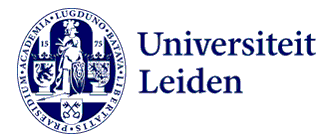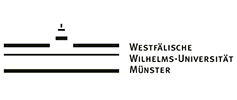Socio-Economic Origins of Constitutional Review in Central Asia: Political Economy and Politico-Historical Context as Defining Factors
DOI:
https://doi.org/10.31078/consrev725Keywords:
Central Asia, Constitutional Review, Constitutionalism, Judicial Review, Constitutional CourtsAbstract
This article pursues two main objectives. First, to identify the main factors behind the establishment of constitutional review in Central Asia. Second, to define how those factors have shaped the institutional design of constitutional courts. In doing so, this article revisits standard theories of comparative constitutional law in terms of the origin of judicial review. While the insurance theory dominates the present global discourse on judicial review, it cannot completely and accurately account for the origin of constitutional review in Central Asia. Rather, this article conveys that the main impetus and motivation behind the establishment of constitutional courts and their institutional designs has been the economic interests of Central Asian states, determined by the region’s political and historical context.References
Anderson, John. Kyrgyzstan: Central Asia’s Island of Democracy? London: Routledge, 1999.
Beissinger, Mark R. Nationalist Mobilization and the Collapse of the Soviet Union. Cambridge: Cambridge University Press, 2002.
Bohr, Annette. Uzbekistan: Politics and Foreign Policy. London: Royal Institute of International Affairs, 1998.
Bova, Russell. “Political Dynamics of a Post-Communist Transition: A Comparative Perspective.” World Politics 44, no. 1 (1991).
Bunce, Valerie. “Rethinking Recent Democratization: Lessons from Post- Communist Experience.” World Politics 55, no. 2 (2003).
Butt, Simon, Melissa Crouch and Rosalind Dixon. “The First Decade of Indonesia’s Constitutional Court.” Australian Journal of Asian Law 16 (2016).
Cameron, David R. and Mitchell A. Orenstein. “Post-Soviet Authoritarianism: The Influence of Russia in Its “Near Abroad”.” Post-Soviet Affairs 28, no. 1 (2012).
Cappelletti, Mauro. The Judicial Process in Comparative Perspective. Oxford: Clarendon Press, 1989.
Collins, Kathleen. “Clans, Pacts, and Politics in Central Asia.” Journal of Democracy 13, no. 3 (2002).
Cummings, Sally. Power and Change in Central Asia, Politics in Asia. Oxfordshire: Routledge, 2002.
Dagiev, Dagikhudo. Regime Transition in Central Asia: Stateness, Nationalism and Political Change in Tajikistan and Uzbekistan. Oxfordshire: Routledge, Taylor & Francis Group, 2013.
Daly, Tom Gerald. The Alchemists: Questioning our Faith in Courts as Democracy- Builders. Cambridge: Cambridge University Press, 2017.
Delaney, Erin and Rosalind Dixon. “Introduction.” In Comparative Judicial Review, edited by E. Delaney and R. Dixon. Camberley: Edward Elgar Publishing, 2018.
Dixon, Rosalind and Tom Ginsburg. “Constitutions as Political Insurance: Variants and Limits.” In Comparative Judicial Review, edited by E. Delaney and R. Dixon. Camberley: Edward Elgar Publishing, 2018.
Dixon, Rosalind and Tom Ginsburg. “The Forms and Limits of Constitutions as Political Insurance.” International Journal of Constitutional Law 15 (2017).
EJF. “White Gold – The True Cost of Cotton: Uzbekistan Cotton and the Crushing of a Nation.” Environmental Justice Foundation, 2005.
Epperly, Brad. “The Provision of Insurance? Judicial Independence and the Post- Tenure Fate of Leaders.” Journal of Law and Courts 1 (2013).
Epstein, Lee, Jack Knight and Olga Shvetsova. “The Role of Constitutional Courts in the Establishment and Maintenance of Democratic Systems of Government.” Law & Society Review 35 (2001).
Finkel, Jodi. Judicial Reform as Political Insurance: Argentina, Peru and Mexico in the 1990s. Notre Dame: University of Notre Dame, 2008.
Gatmaytan, Dante. “Judicial Review of Constitutional Amendments: The Insurance Theory in Post-Marcos Philippines.” Philippine Law and Society Review 1 (2011).
Ginsburg, Tom. Judicial Review in New Democracies: Constitutional Courts in Asian Cases. Cambridge: Cambridge University Press, 2003.
Ginsburg, Tom and Mila Versteeg. “Why Do Countries Adopt Constitutional Review?” Journal of Law, Economics, and Organization 30, no. 3 (2014).
Goderis, Benedikt and Mila Versteeg. “The Transnational Origins of Constitutions: Evidence from a New Global Data Set on Constitutional Rights.” CentER Discussion Paper, 2013.
Guarnieri, Carlo and Patrizia Pederzoli. The Power of Judges: A Comparative Study of Courts and Democracy. Oxford: Oxford University Press, 2002.
Kerven, Carol et al. “A pastoral frontier: From chaos to capitalism and the re- colonisation of the Kazakh rangelands.” Journal of Arid Environments 127 (2016).
Harding, Andrew and Penelope Nicholson. New Courts in Asia. Oxford: Routledge, 2010.
Hendrianto, Stefanus. Law and Politics of Constitutional Courts: Indonesia and the Search for Judicial Heroes. New York: Routledge, 2018.
Hilbink, Lisa. Judges Beyond Politics in Dictatorship and Democracy. Cambridge: Cambridge University Press, 2008.
Hirschl, Ran. Towards Juristocracy: The Origins and Consequences of the New Constitutionalism. Cambridge: Harvard University Press, 2009.2009
Hoff, Karla and Joseph Stiglitz. “After the Big Bang? Obstacles to the Emergence of the Rule of Law in Post-Communist Societies.” American Economic Review 94, no. 3 (2004).
Inclan, Silvia. “Judicial Reform in Mexico: Political Insurance or the Search for Political Legitimacy?” Political Research Quarterly 62 (2009).
Issacharoff, Samuel. Fragile Democracies: Contested Power in the Era of Constitutional Courts. Cambridge: Cambridge University Press, 2015.
Kulchik, Yuriy, Andrey Fadin and Victor Sergeev. Central Asia After the Empire. London: Pluto Press, 1999.
Levitsky, Steven and Lucan Way. Competitive Authoritarianism: Hybrid Regimes After the Cold War. Cambridge: Cambridge University Press, 2010.
Mason, David. Revolution and Transition in East-Central Europe 2nd Edition. Oxfordshire: Routledge, 1996.
McFaul, Michael. “The Fourth Wave of Democracy and Dictatorship: Noncooperative Transitions in the Post-Communist World.” World Politics 54, no. 2 (2002).
Muradov, Bakhodyr and Alisher Ilkhamov. “Uzbekistan’s Cotton Sector: Financial Flows and Distribution of Resources.” Open Society Eurasia Program Working Paper, 2014.
Murzakulova, Asel and John Schoeberlein. “The Invention of Legitimacy: Struggles in Kyrgyzstan to Craft an Effective Nation-State Ideology.” Europe-Asia Studies 61, no. 7 (2009).
Offe, Claus. “Capitalism by Democratic Design? Democratic Theory Facing the Triple Transition in East Central Europe.” Social Research 58 (1991).
Pomfret, Richard. The Central Asian Economies in the Twenty-First Century. New Jersey: Princeton University Press, 2019.
Pomfret, Richard. The Economies of Central Asia. New Jersey: Princeton University Press, 1995.
Popova, Maria. Politicized Justice in Emerging Democracies: A Study of Courts in Russia and Ukraine. Cambridge: Cambridge University Press, 2014.
Randazzo, Kirk, Douglas Gibler and Rebecca Reid. “Examining the Development of Judicial Independence.” Political Research Quarterly 69 (2016).
Roudik, Peter. The History of the Central Asian Republics. Connecticut: Greenwood Publishing Group, 2007.
Schopflin, George. “The End of Communism in Europe.” International Affairs 3, no. 66 (1990).
Shapiro, Martin. “The Success of Judicial Review,” in Constitutional Dialogues in Comparative Perspective, edited by Sally J. Kenney, William M. Reisinger and John C. Reitz. Great Britain: Palgrave Macmillan, 1999.
Sunstein, Cass R. “Constitutionalism, Prosperity, Democracy: Transition in Eastern Europe.” Constitutional Political Economy 2 (1991).
Tridimas, George. “Constitutional Judicial Review and Political Insurance.” European Journal of Law and Economics 29 (2009).
Volcansek, Mary. “Bargaining Constitutional Design in Italy: Judicial Review as Political Insurance.” West European Politics 33 (2010).
Beissinger, Mark R. Nationalist Mobilization and the Collapse of the Soviet Union. Cambridge: Cambridge University Press, 2002.
Bohr, Annette. Uzbekistan: Politics and Foreign Policy. London: Royal Institute of International Affairs, 1998.
Bova, Russell. “Political Dynamics of a Post-Communist Transition: A Comparative Perspective.” World Politics 44, no. 1 (1991).
Bunce, Valerie. “Rethinking Recent Democratization: Lessons from Post- Communist Experience.” World Politics 55, no. 2 (2003).
Butt, Simon, Melissa Crouch and Rosalind Dixon. “The First Decade of Indonesia’s Constitutional Court.” Australian Journal of Asian Law 16 (2016).
Cameron, David R. and Mitchell A. Orenstein. “Post-Soviet Authoritarianism: The Influence of Russia in Its “Near Abroad”.” Post-Soviet Affairs 28, no. 1 (2012).
Cappelletti, Mauro. The Judicial Process in Comparative Perspective. Oxford: Clarendon Press, 1989.
Collins, Kathleen. “Clans, Pacts, and Politics in Central Asia.” Journal of Democracy 13, no. 3 (2002).
Cummings, Sally. Power and Change in Central Asia, Politics in Asia. Oxfordshire: Routledge, 2002.
Dagiev, Dagikhudo. Regime Transition in Central Asia: Stateness, Nationalism and Political Change in Tajikistan and Uzbekistan. Oxfordshire: Routledge, Taylor & Francis Group, 2013.
Daly, Tom Gerald. The Alchemists: Questioning our Faith in Courts as Democracy- Builders. Cambridge: Cambridge University Press, 2017.
Delaney, Erin and Rosalind Dixon. “Introduction.” In Comparative Judicial Review, edited by E. Delaney and R. Dixon. Camberley: Edward Elgar Publishing, 2018.
Dixon, Rosalind and Tom Ginsburg. “Constitutions as Political Insurance: Variants and Limits.” In Comparative Judicial Review, edited by E. Delaney and R. Dixon. Camberley: Edward Elgar Publishing, 2018.
Dixon, Rosalind and Tom Ginsburg. “The Forms and Limits of Constitutions as Political Insurance.” International Journal of Constitutional Law 15 (2017).
EJF. “White Gold – The True Cost of Cotton: Uzbekistan Cotton and the Crushing of a Nation.” Environmental Justice Foundation, 2005.
Epperly, Brad. “The Provision of Insurance? Judicial Independence and the Post- Tenure Fate of Leaders.” Journal of Law and Courts 1 (2013).
Epstein, Lee, Jack Knight and Olga Shvetsova. “The Role of Constitutional Courts in the Establishment and Maintenance of Democratic Systems of Government.” Law & Society Review 35 (2001).
Finkel, Jodi. Judicial Reform as Political Insurance: Argentina, Peru and Mexico in the 1990s. Notre Dame: University of Notre Dame, 2008.
Gatmaytan, Dante. “Judicial Review of Constitutional Amendments: The Insurance Theory in Post-Marcos Philippines.” Philippine Law and Society Review 1 (2011).
Ginsburg, Tom. Judicial Review in New Democracies: Constitutional Courts in Asian Cases. Cambridge: Cambridge University Press, 2003.
Ginsburg, Tom and Mila Versteeg. “Why Do Countries Adopt Constitutional Review?” Journal of Law, Economics, and Organization 30, no. 3 (2014).
Goderis, Benedikt and Mila Versteeg. “The Transnational Origins of Constitutions: Evidence from a New Global Data Set on Constitutional Rights.” CentER Discussion Paper, 2013.
Guarnieri, Carlo and Patrizia Pederzoli. The Power of Judges: A Comparative Study of Courts and Democracy. Oxford: Oxford University Press, 2002.
Kerven, Carol et al. “A pastoral frontier: From chaos to capitalism and the re- colonisation of the Kazakh rangelands.” Journal of Arid Environments 127 (2016).
Harding, Andrew and Penelope Nicholson. New Courts in Asia. Oxford: Routledge, 2010.
Hendrianto, Stefanus. Law and Politics of Constitutional Courts: Indonesia and the Search for Judicial Heroes. New York: Routledge, 2018.
Hilbink, Lisa. Judges Beyond Politics in Dictatorship and Democracy. Cambridge: Cambridge University Press, 2008.
Hirschl, Ran. Towards Juristocracy: The Origins and Consequences of the New Constitutionalism. Cambridge: Harvard University Press, 2009.2009
Hoff, Karla and Joseph Stiglitz. “After the Big Bang? Obstacles to the Emergence of the Rule of Law in Post-Communist Societies.” American Economic Review 94, no. 3 (2004).
Inclan, Silvia. “Judicial Reform in Mexico: Political Insurance or the Search for Political Legitimacy?” Political Research Quarterly 62 (2009).
Issacharoff, Samuel. Fragile Democracies: Contested Power in the Era of Constitutional Courts. Cambridge: Cambridge University Press, 2015.
Kulchik, Yuriy, Andrey Fadin and Victor Sergeev. Central Asia After the Empire. London: Pluto Press, 1999.
Levitsky, Steven and Lucan Way. Competitive Authoritarianism: Hybrid Regimes After the Cold War. Cambridge: Cambridge University Press, 2010.
Mason, David. Revolution and Transition in East-Central Europe 2nd Edition. Oxfordshire: Routledge, 1996.
McFaul, Michael. “The Fourth Wave of Democracy and Dictatorship: Noncooperative Transitions in the Post-Communist World.” World Politics 54, no. 2 (2002).
Muradov, Bakhodyr and Alisher Ilkhamov. “Uzbekistan’s Cotton Sector: Financial Flows and Distribution of Resources.” Open Society Eurasia Program Working Paper, 2014.
Murzakulova, Asel and John Schoeberlein. “The Invention of Legitimacy: Struggles in Kyrgyzstan to Craft an Effective Nation-State Ideology.” Europe-Asia Studies 61, no. 7 (2009).
Offe, Claus. “Capitalism by Democratic Design? Democratic Theory Facing the Triple Transition in East Central Europe.” Social Research 58 (1991).
Pomfret, Richard. The Central Asian Economies in the Twenty-First Century. New Jersey: Princeton University Press, 2019.
Pomfret, Richard. The Economies of Central Asia. New Jersey: Princeton University Press, 1995.
Popova, Maria. Politicized Justice in Emerging Democracies: A Study of Courts in Russia and Ukraine. Cambridge: Cambridge University Press, 2014.
Randazzo, Kirk, Douglas Gibler and Rebecca Reid. “Examining the Development of Judicial Independence.” Political Research Quarterly 69 (2016).
Roudik, Peter. The History of the Central Asian Republics. Connecticut: Greenwood Publishing Group, 2007.
Schopflin, George. “The End of Communism in Europe.” International Affairs 3, no. 66 (1990).
Shapiro, Martin. “The Success of Judicial Review,” in Constitutional Dialogues in Comparative Perspective, edited by Sally J. Kenney, William M. Reisinger and John C. Reitz. Great Britain: Palgrave Macmillan, 1999.
Sunstein, Cass R. “Constitutionalism, Prosperity, Democracy: Transition in Eastern Europe.” Constitutional Political Economy 2 (1991).
Tridimas, George. “Constitutional Judicial Review and Political Insurance.” European Journal of Law and Economics 29 (2009).
Volcansek, Mary. “Bargaining Constitutional Design in Italy: Judicial Review as Political Insurance.” West European Politics 33 (2010).
Downloads
Published
2021-12-31
How to Cite
Toktogazieva, S. (2021). Socio-Economic Origins of Constitutional Review in Central Asia: Political Economy and Politico-Historical Context as Defining Factors. Constitutional Review, 7(2), 300–325. https://doi.org/10.31078/consrev725
Issue
Section
Articles
































































